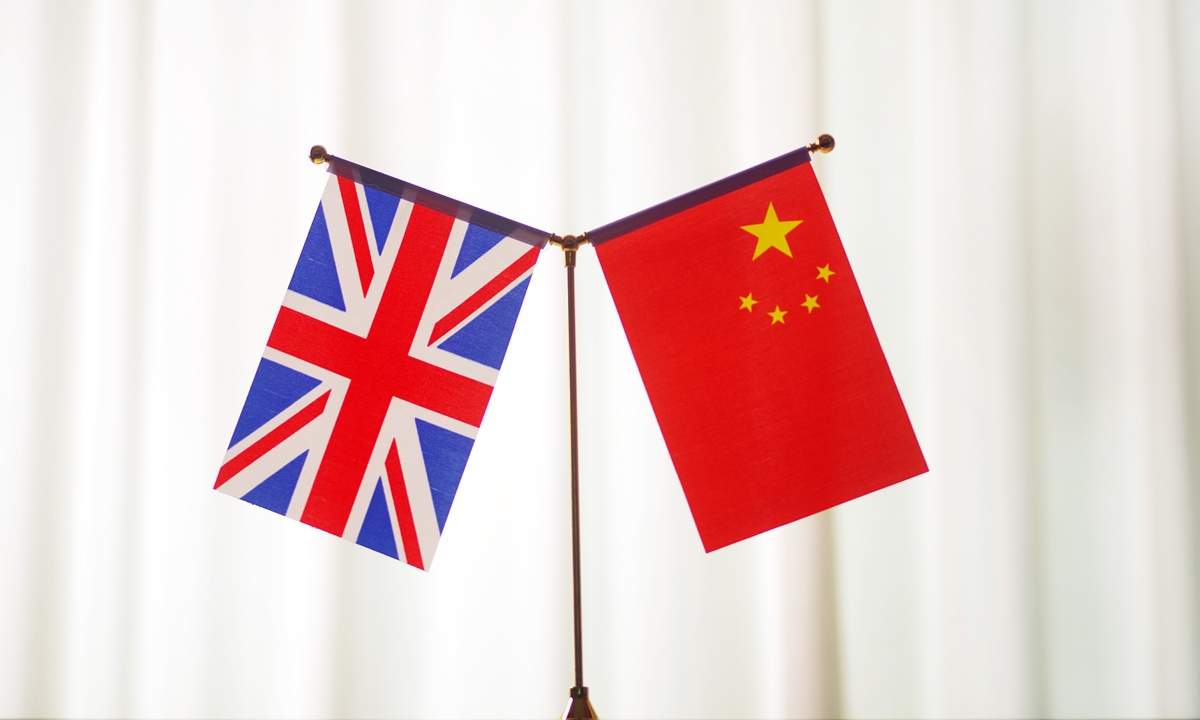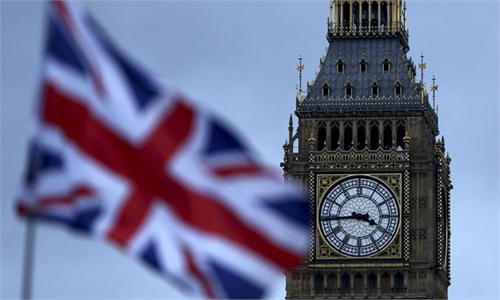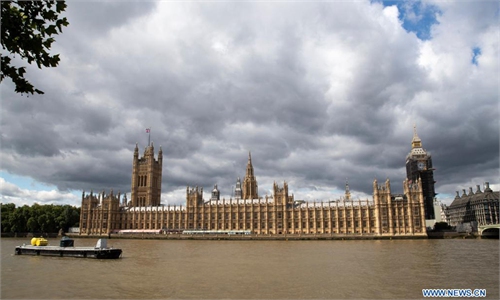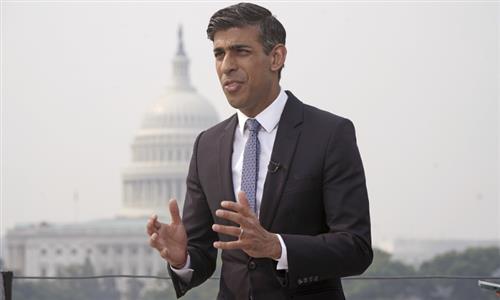
Illustration: Liu Rui/Global Times
Recently, there have been increasing discussions in China and other countries regarding "whether there will be new changes in China-UK relations." This has much to do with the recent dialogue and exchanges between Chinese and British high-level officials. In July this year, the Labour Party won the general election and Keir Starmer became the new British prime minister. Chinese President Xi Jinping had a telephone conversation with Starmer upon invitation in August. On Wednesday, the related officials on both sides had a phone call to exchange views on restarting the China-UK Economic and Financial Dialogue and enhancing trade and economic cooperation.Previously, the heads of the foreign ministries of the two countries held a face-to-face talk, and the British financial department is also conducting dialogue with Chinese financial institutions. In addition, UK Labour party veteran Peter Mandelson, who is considered by the outside world to be Starmer's "important advisor," said during a visit to Hong Kong that Beijing should reciprocate the new British government's willingness to re-engage with China to mend their frosty relations.
The attention of public opinion to China-UK relations indeed reflects a deep-seated phenomenon, that is, at a time when the global political and economic situation is facing increasing complexity and uncertainty, the international community has expectations for the current and future relations between China and Britain.
On the one hand, China and the UK are both permanent members of the United Nations Security Council and major economies in the world. As two regional powers, their relations have an important impact in their respective regions and around the world. On the other hand, China-UK relations have recently not been smooth sailing, which became cold, stagnant and even at risk of regression. This is largely because the original political mutual trust between the two countries was severely consumed during Britain's previous rounds of hype on political security, Hong Kong, human rights and other issues. This is partly due to the fact that some British politicians rely on hyping up the "China threat" rhetoric to gain political capital and followed the US' strategic shift in comprehensive competition with China, and is also owing to the UK's unbalanced mentality in the face of China's development.
Starmer is the sixth British Prime Minister in eight years, during which the UK's China policy has undergone significant changes. Foreign Policy magazine commented just days after the new government took office that "high on the new government's list will also be a more balanced and coherent China strategy to replace the muddle that has marked London's approach to Beijing over recent years." This is not an exaggeration. For some time now, the UK's China policy has not only been unstable but could even be described as chaotic, leading to what can be seen as a "comatose" state in China-UK relations. The article also pointed out that former prime minister Liz Truss gave plenty of high-profile speeches bashing Beijing that produced nothing useful, and "a more balanced, better informed, and less comatose approach ought to be within reach" for the new government.
In fact, whether it can get rid of the "guidance" of the US in its China policy and seek to maximize national interests with relative autonomy is the biggest test for the Starmer government in handling relations with China. The British side has proposed the three Cs of its China policy, namely compete, challenge, and cooperate. This is still a replica of the US' "three-point rule" toward China, and is not a healthy understanding of China-UK relations. We often say that China-US relations need to fasten the first button of understanding China. Similarly, the UK, which has a special relationship with the US, also needs to fasten this button. Recently, the UK and the US issued a joint statement on the so-called strategic dialogue, blatantly discussing the Taiwan island and South China Sea issues, and claiming that "China supports Russia's defense industrial base," which exposed the deep-rooted misunderstandings about China among the British political elites. These are all obstacles to getting China-UK relations back on track.
China has never interfered with how the UK makes friends. A very important reason why the two countries have been able to maintain a stable attitude of win-win cooperation for a long time is that China has never put China-UK relations, or relations with any country, at the subsidiary position of China-US diplomacy. In this sense, the ups and downs in China-UK relations in recent years are more like the UK's self-torture. China welcomes the openness and cooperation with all countries, and it is better for the UK to participate, but if it really misjudges the situation and makes provocations at all fronts, China will definitely not tolerate such behaviors.
There are no geopolitical conflicts or unresolved historical issues between China and the UK, so there are no fundamental conflicts of interest. When discussing China-UK relations, Alistair Michie, secretary general of the British East Asia Council, stated, "What we truly need is more dialogue and discussion to foster an intelligent conversation among nations." From being the first Western country to recognize the People's Republic of China in 1950, to becoming the first European country to join the Asian Infrastructure Investment Bank, the UK is hailed by the media as the "key offshore market for RMB internationalization." Successive British governments have shown their wisdom. Today, as China accelerates the development of new productive forces and promotes new-type industrialization, this will create new opportunities for countries around the world, including the UK. British policymakers have historically not lacked wisdom, but what is needed now is the courage to seize opportunities.
"To be or not to be" is the profound question William Shakespeare posed to Britain and the world. Similarly, for Downing Street today, "to change or to remain stagnant" is a crucial question regarding the future of China-UK relations.
To develop a stable and mutually beneficial China-UK relationship, the two countries need mutual respect and frequent communication, meet each other halfway to find consensus, and work together for mutual benefit and cooperation. Therefore, instead of adhering to the "compete, challenge, and cooperate" framework of the three Cs, we would like to propose better "new three Cs" - Communication, Consensus, and Cooperation.



